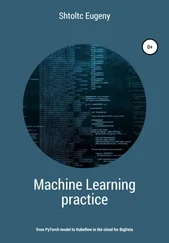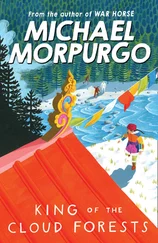Matt Richtel - The Cloud
Здесь есть возможность читать онлайн «Matt Richtel - The Cloud» весь текст электронной книги совершенно бесплатно (целиком полную версию без сокращений). В некоторых случаях можно слушать аудио, скачать через торрент в формате fb2 и присутствует краткое содержание. Жанр: Триллер, на английском языке. Описание произведения, (предисловие) а так же отзывы посетителей доступны на портале библиотеки ЛибКат.
- Название:The Cloud
- Автор:
- Жанр:
- Год:неизвестен
- ISBN:нет данных
- Рейтинг книги:3 / 5. Голосов: 1
-
Избранное:Добавить в избранное
- Отзывы:
-
Ваша оценка:
- 60
- 1
- 2
- 3
- 4
- 5
The Cloud: краткое содержание, описание и аннотация
Предлагаем к чтению аннотацию, описание, краткое содержание или предисловие (зависит от того, что написал сам автор книги «The Cloud»). Если вы не нашли необходимую информацию о книге — напишите в комментариях, мы постараемся отыскать её.
The Cloud — читать онлайн бесплатно полную книгу (весь текст) целиком
Ниже представлен текст книги, разбитый по страницам. Система сохранения места последней прочитанной страницы, позволяет с удобством читать онлайн бесплатно книгу «The Cloud», без необходимости каждый раз заново искать на чём Вы остановились. Поставьте закладку, и сможете в любой момент перейти на страницу, на которой закончили чтение.
Интервал:
Закладка:
“Andrew, to your knowledge was there anyone at the lunch associated with ties to the Chinese government or any Chinese investor groups?”
He tilts his head.
“I ran into a guy the other day named Alan Parsons. He wanted me to look into a story about some interesting technology coming out of China. I wonder if it’s connected to the guy who is following me.”
I’m mostly making this up or experimenting with logic. Andrew’s pupils constrict slightly, indecipherable.
“So some guy that wants to see what reporting you’re up to follows you into an awards banquet? Why not wait outside?”
“Maybe he heard they were serving salmon.”
“What?”
“Never mind.” I’m not sure why I stepped on my own interrogation with a bad joke. Maybe I’m not asking a fair question, about how someone with ill intent could get into the lunch. After all, it was essentially open. It even served as easy hunting grounds for the rotund process server who chased me down to let me know I somehow owe back taxes.
Andrew shrugs. “Can you tell me more about the story you’re doing?”
“I wish.” I laugh, mostly genuinely. “This is one of those backward stories.”
“How do you mean?”
“Someone seems really upset at the idea of me learning something. I’m working backward from that point. The theory being that the more someone doesn’t want you to know something, the potentially more interesting it is.”
“But you don’t know what something you’re looking for?”
I let his question linger, then hear a buzzing. From a pocket, Andrew extracts a BlackBerry, looks at the screen, pauses, gives his device the thousand-yard stare. Is he thinking how to respond or using the opportunity to strategize about our conversation? He taps something back.
I have a sudden visceral reaction that I don’t want to overplay my hand, not yet. I’m deciding not to broach the issue of the dead girl and his charitable work with the schools, or Sandy Vello. I need some cards for future conversations with Andrew, and I’m feeling at this point there will be more. I’ve got him engaged, curious, even if he’s playing me too.
“Are you feeling okay?”
I realize I’ve been floating, mind wandering, my gaze resting on a newspaper rack.
“Dandy.”
He nods, lips pursed. “Off the record. Okay?”
I nod.
“You ever have your arms lifted behind your back?”
I shake my head.
“The first night when I was in prison, in Romania, two beefcakes spent the night pulling my arms over my head, proving their mettle by trying to tear off the scrawny arms of a computer geek.”
“That’s off the record?”
“I pissed myself. I was delirious with pain.” He clears his throat. “I had this plan to break out by getting help from one of the guards by promising I’d hack into a bank and wire his family a hundred thousand dollars. But the problem was that I got so delirious I couldn’t tell which guard was most likely to go for it. The question was, Which guard would show pity on me and which would more likely turn me in for a slightly larger apartment with a river view?”
“How’d you figure it out?”
“You know how computers make decisions?”
I shake my head.
“Simple math. Probabilities. Sure, the fancy ones, like Deep Blue, mix in some algorithms that calculate, if you will, the unpredictability of a human behavior. They factor for chaos. But it’s still ultimately about the numbers. What is the best probability of effecting a certain outcome?”
“Okay.”
“Do you know how children make decisions?”
I feel suddenly warm. Don’t talk, Nat, let him ramble.
“Their frontal lobes aren’t developed yet. So they can’t make long-term calculations. They don’t think in terms of goals or priorities, certainly not numbers. They react to primitive emotions, like what interests them on a sensory level, or what seems like a safe or trustworthy situation.” He pauses. “Or person. So as I’m sitting in my own piss, I tried to set aside a lifetime trying to think like a supercomputer and tried to think like a baby. I asked myself, which man feels to me like he’d be the best dad? Which would feel most comfortable for me to turn to were I his child?”
“And?”
“And I chose the other guy. I figured the guy most likely to care for his family would take the apartment with the river view. The other guy would see the situation more coldly.”
He doesn’t finish the story. History has shown he chose the right guy.
He stands. “Sometimes it’s hard to tell the good guys from the bad guys.”
I let his allegory wash over me.
“Especially if you’re delirious.” I give voice to his apparent lesson. “You think I’m delirious?”
He smiles, all white teeth and trust, charisma incarnate, the friendly genius, the omnipotent, warning me that things don’t seem right with me.
“You’re an investigative journalist. Isn’t delirium an occupational hazard?”
He extends his hand. We shake, firm, but he avoids eye contact.
“I’ll be in touch,” he says.
Back at the car, I find a parking ticket on the windshield and Faith asleep in the passenger seat. A ribbon of brown hair cascades across her face, moving slightly with each exhale.
I gently open the driver’s seat door; she stirs but doesn’t wake up. In the cup holder, I spy her cell phone. At this point, all’s fair; with one eye on sleeping beauty, I lift her phone to explore her recent communications.
31
Iscroll through the recent calls. What stands out are the calls from “Carl_L,” including two last night after midnight. There also are two calls this morning from Mission Day School. If memory serves, it’s the school her nephew attends.
Faith stirs. I lower the phone. She settles back down, and I lift the device again. I check her voice mails. She’s cleared all but one-from last night from “Carl_L.” I lower the phone’s volume, and hit play on the voice mail.
A male voice says: “Stop playing around, Faith. You’re running out of time.” The caller hangs up.
I play it again. I can’t gauge how stern the warning sounds. The hostility of the words, and their brevity, suggest something very threatening, but the voice sounds plaintive, even desperate.
Faith stirs, and rolls toward me, curling into a quasi-fetal position. I feel an intense urge to close my eyes, put my head next to her, wake up on an island.
What or who is haunting you, Faith? Who are you? Why are you running out of time? To do what?
I put down her phone but leave it open. I reach for my phone and into it copy the number for “Carl_L” and hit send to initiate a call, then quickly end it. I close Faith’s phone.
I reach into my wallet. I pull out the number for a different phone-the one I’d placed on the windshield of the Mercedes while it was parked in Chinatown.
In the compartment on the driver’s-side door, I find some old earbuds among the compact discs. I plug them into my phone.
I start the car, drive ten minutes up University Avenue until I wind myself back to Highway 280. At the on ramp, I pause at a yield sign and punch into my phone the number for Buzzard Bill. I roll onto the highway and hit send.
The phone rings and rings. I end the call and hit redial.
It barely rings once when someone picks up. A voice says: “How was Peet’s?”
The cafe where I met Andrew.
“Fine, but their French roast has too much aftertaste.”
“You didn’t order coffee.”
“You were there?”
“We’re everywhere.”
We.
I look in the rearview mirror. I’m sloping up a hill just past the exit for Atherton, struck by how rural this area can suddenly become. City and suburb one second, endless stretches of Golden State the next. Here, peaceful terrain and powerful sports cars.
Читать дальшеИнтервал:
Закладка:
Похожие книги на «The Cloud»
Представляем Вашему вниманию похожие книги на «The Cloud» списком для выбора. Мы отобрали схожую по названию и смыслу литературу в надежде предоставить читателям больше вариантов отыскать новые, интересные, ещё непрочитанные произведения.
Обсуждение, отзывы о книге «The Cloud» и просто собственные мнения читателей. Оставьте ваши комментарии, напишите, что Вы думаете о произведении, его смысле или главных героях. Укажите что конкретно понравилось, а что нет, и почему Вы так считаете.












